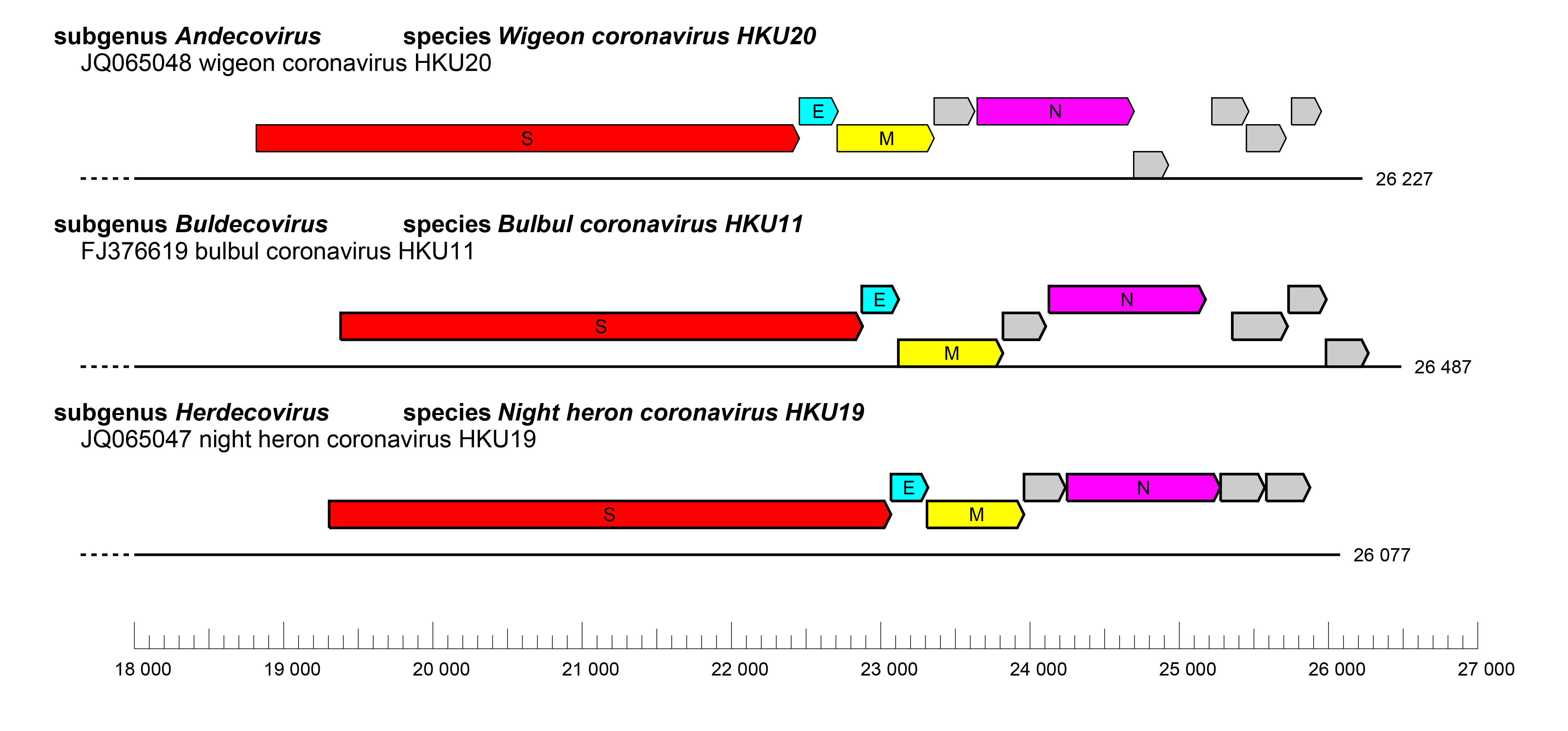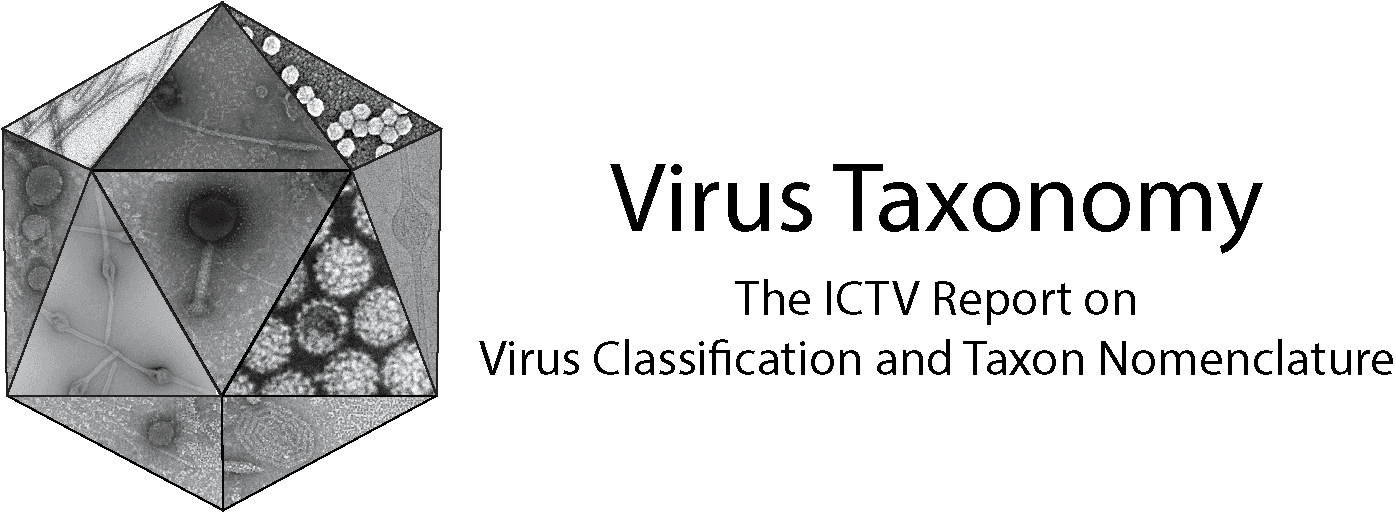Subfamily: Orthocoronavirinae
Genus: Deltacoronavirus
Distinguishing features
Deltacoronaviruses form a distinct monophyletic group in the Orthocoronavirinae subfamily and differ from other coronaviruses in lacking an nsp1 gene in ORF1a (Figure 1.Deltacoronoavirus). Three deltacoronavirus subgenera can be distinguished, namely Andecovirus, Buldecovirus and Herdecovirus. Various sets of accessory genes are observed in members of different subgenera members (Figure 1.Deltacoronavirus). Most deltacoronaviruses have been found in birds, the only exception being porcine coronavirus HKU15, previously known as porcine deltacoronavirus, which is found in pigs and occasionally in humans (Lednicky et al., 2021).
 |
|
Figure 1.Deltacoronavirus. Deltacoronavirus genome organization. Comparison of the 3′-terminal genomic regions downstream of ORF1b of representatives of each subgenus. ORFs are depicted as coloured boxes with red, S; cyan, E; yellow, M and magenta, N. ORFs for accessory proteins are depicted as coloured boxes in grey. |
Biology
Unlike alphacoronaviruses and betacoronaviruses, deltacoronaviruses have usually been discovered in diverse avian hosts (Woo et al., 2009b); wigeon coronavirus HKU20 (subgenus Andecovirus) was identified in wigeon (Woo et al., 2012), various members of the subgenus Buldecovirus have been discovered in bulbul, common moorhen, munia and white-eye (Lau et al., 2018a), and night heron coronavirus HKU19 (subgenus Herdecovirus) was discovered in night herons (Woo et al., 2012). The only non-avian member of the genus is porcine coronavirus HKU15 (subgenus Buldecovirus, species Coronavirus HKU15) (Woo et al., 2012). This virus has been widely detected in pigs from regions including East/Southeast Asia, North America, etc. and is responsible for outbreaks of respiratory and enteric disease in pig farms (Wang et al., 2014a, Wang et al., 2014b, Dong et al., 2015, Janetanakit et al., 2016, Lee et al., 2016, Madapong et al., 2016, Saeng-Chuto et al., 2017, Le et al., 2018). This virus is spread through both the respiratory and faecal-oral routes. Human isolates of Coronavirus HKU15 (human porcine deltacoronavirus [HuPDCoV]), have been found in three Haitian children with transient mild fever, cough or abdominal pain (Lednicky et al., 2021).
Subgenus demarcation criteria
Details correspond to the family descriptions.
Species demarcation criteria
Details correspond to the family descriptions.

